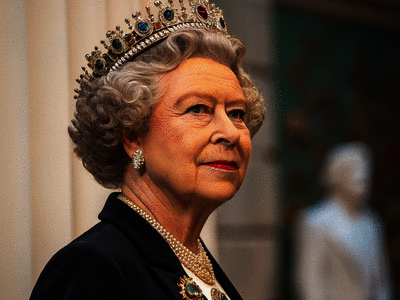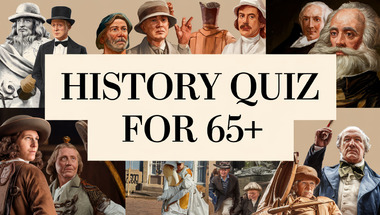


10 mixed questions

Can you answer these 10 questions to assess y..

10 mi

10 questions to test your knowledge

Let's test your trivia skills!

How many correct answers will you get?

Question 9 and 10 will be quite the challenge

Tell us your result in the comments

10 questions

Where have you been?

How many correct will you get?

Here are ten amusing inquiries for you to pon..

10 Trivia Questions

10 questions to test your knowledge

Scoring a clean 10 will never happen

10 Impossible Questions

10 questions

How many correct will you get?

10 fun questions

How many correct will you get?

How's your trivia brain doing?

How many correct will you get?

How many of them will you answer correctly?

10 mixed questions

10 mixed questions

How many of them will you answer correctly?

Click here to have fun

10 mixed trivia questions

Can you beat these 10 questions?

10 fun questions

10

Are you up for a quiz?

10 questions

10 songs to guess

Please tell me your score in the comments

Post your result in the comment section :)

10 questions

How many of them will you answer correctly?

Are you up for a quiz?

Mixed Knowledge

10 questions to challenge your knowledge

Can you even get 5 out of 10 correct?

Did you pay attention in school?

How many of these songs do you remember?

10 questions to test your knowledge

10 mixed up trivia questions

Provide 10 questions that test one's general ..

10 fun questions

10 mixed questions

10 questions

10 mixed questions for you to have fun with

Try out this fun quick quiz

10 questions

10 Hard Questions

10 hot questions

How many correct will you get?

Can you help us find the missing words?

10 hot questions

How many songs do you know?

10 mixed movie questions

How many of them will you answer correctly?

10 mixed questions for you

Do you know what these girls are doing?

We wrote 10 questions in mixed categories

* 10 mixed general questions *

How many correct will you get?

Tell us the meaning of these 10 words

10 mixed up questions

Are you up for a quiz?

How many of them will you answer correctly?

Mixed category quiz

Let's see how smart you really are!

10 quite impossible questions

Do you remember the 1960s?

10 questions to test your knowledge

10 Impossible Questions

Tell us your result in the comments

Take it here

10 songs to guess

10 questions. Are you up for the challenge?

10 mixed questions

How smart are you really?

Show us you can score 8/10 please

How many correct will you get?

Are you up for a quiz?

10 mixed questions

Let us know your score in the comment section

10 mixed questions

10 questions of various topics

10 hot questions

10 fun questions for you

Can you recall this amazing decade?

How many of them will you answer correctly?

Are you up for a quiz?

10 mixed questions

Let's see how smart you really are!

Can you name the artists?

Tell your score in the comments!

Did you pay attention in school?

Can you even get 5 out of 10 correct?

How many correct will you get?

10 questions

10 fun questions

Are you up for a quiz?

10 songs to guess

Take the quiz right here

How many songs do you know?

How many correct will you get?

10 actionpacked questions

10 questions about the songs of the past

10 entertaining questions

10 questions to answer

Let's see how smart you really are!

10 questions to test your knowledge

10 mixed up history questions

10 mixed questions

10 fun questions

Your goal is to score 5/10

How many correct answers will you get?

Test your knowledge with these 10 questions.

Trivia questions are a delightful way to challenge our knowledge, spark lively conversations, and revisit moments from history, literature, and pop culture. The following article dives deep into ten intriguing trivia questions, unpacking the stories, facts, and curiosities behind each one. As you read, perhaps you’ll learn something new or be inspired to explore a topic further!
1. Which form of transportation was invented first?
Transportation has always been integral to human development, connecting people and places, enabling trade, and fostering cultural exchange. When considering which form of transportation was invented first, it is important to look back into ancient history. The earliest forms of transportation were likely simple rafts and canoes, as humans discovered the buoyancy of wood and the potential of rivers for movement. However, the wheel—used for carts and chariots—marks a significant technological leap. Archaeological evidence suggests the wheel appeared around 3500 BCE in Mesopotamia. This invention revolutionized land transport and laid the groundwork for everything from horse-drawn wagons to modern automobiles. Thus, while boats may predate the wheel, the wheel's impact on civilization is unparalleled in the history of transportation.
2. What is Mark Twain considered the father of?
Samuel Langhorne Clemens, better known by his pen name Mark Twain, is often hailed as the father of American literature. Twain's works, such as The Adventures of Tom Sawyer and Adventures of Huckleberry Finn, capture the spirit, dialects, and social landscapes of 19th-century America. His use of colloquial speech and humor brought authenticity to his stories, influencing generations of writers after him. Ernest Hemingway even stated, All modern American literature comes from one book by Mark Twain called Huckleberry Finn. Twain's keen observations and satirical wit not only entertained but also challenged societal norms, especially regarding race and class. His legacy cements him as a foundational figure in shaping American literary identity.
3. What was found in the Klondike region in 1890?
The Klondike region, located in the Yukon territory of northwestern Canada, is synonymous with one of the most legendary gold rushes in history. Although rumors and minor gold discoveries occurred earlier, the Klondike Gold Rush began in earnest in 1896, when prospectors found significant gold deposits in Bonanza Creek. News of the discovery spread rapidly, sparking a stampede in 1897-1898 as an estimated 100,000 people set out for the gold fields, braving harsh conditions and treacherous terrain. The Klondike Gold Rush transformed the region, leading to the founding of Dawson City and a dramatic, albeit short-lived, population boom. The spirit of adventure and the pursuit of fortune during this period have inspired countless stories, including Jack London’s famous novels.
4. Who was the Prime Minister of the United Kingdom from 1940 to 1945?
During one of the most turbulent periods in world history—World War II—the United Kingdom was led by the indomitable Winston Churchill. Serving as Prime Minister from 1940 to 1945 (and again from 1951 to 1955), Churchill is celebrated for his steadfast leadership, stirring speeches, and unyielding determination in the face of Nazi aggression. His oratory, including the iconic We shall fight on the beaches speech, galvanized the British public and earned him a place among the most revered leaders of the 20th century. Churchill’s influence extended far beyond Britain, as he coordinated closely with Allied leaders Franklin D. Roosevelt and Joseph Stalin, shaping the course of the war and the postwar world order.
5. Can you name the former British Prime Minister who took their final bow and exited the political stage permanently in 2013?
The answer to this question is Margaret Thatcher, the Iron Lady. Serving as the UK's first female Prime Minister from 1979 to 1990, Thatcher was a transformative and controversial figure. Her policies emphasized deregulation, privatization of state-owned companies, and reducing the power of trade unions, fundamentally reshaping the British economy and political landscape. After leaving office, she remained a potent symbol of conservative politics until her death in 2013, which marked her permanent departure from the public and political stage. Her legacy remains a topic of debate and study in political science and history.
6. Athena was the patron goddess of which ancient city?
In the pantheon of Greek mythology, Athena stands as the goddess of wisdom, war, and crafts. She is most famously associated as the patron deity of Athens, the ancient Greek city-state. According to myth, Athena won the city's patronage after gifting the Athenians the olive tree, a symbol of peace and prosperity, outshining Poseidon's offering of a saltwater spring. The Parthenon, a magnificent temple atop the Acropolis, was built in her honor and stands as a testament to her enduring influence on the city’s identity, arts, and culture. Athena’s legacy in Athens is intertwined with the city’s values of intellect, civic responsibility, and strategic warfare.
7. In 1998, the Iranian government lifted its fatwa against which writer?
The writer in question is Salman Rushdie. In 1989, Iran’s Supreme Leader Ayatollah Khomeini issued a fatwa calling for Rushdie’s death after the publication of his novel, The Satanic Verses, which was deemed blasphemous by many in the Muslim world. The fatwa sparked international outrage, diplomatic tensions, and debates about freedom of speech. For years, Rushdie lived under police protection. In 1998, the Iranian government, seeking to improve relations with the West, formally distanced itself from the fatwa, though some hardliners continued to uphold it unofficially. The episode remains a defining moment in the ongoing conversation about literature, religion, and the limits of expression.
8. The Catcher in the Rye is set in which country?
J.D. Salinger’s classic novel The Catcher in the Rye is set in the United States, primarily in New York City. The book follows the troubled protagonist, Holden Caulfield, as he wanders the city after being expelled from prep school. Through Holden’s eyes, readers experience the cacophony of urban life, the alienation of adolescence, and the struggle to find authenticity in a world he perceives as phony. Since its publication in 1951, the novel has become a touchstone for teenage angst and rebellion, resonating with readers not only in America but around the world.
9. In which London district did Jack The Ripper commit his murders?
The infamous serial killer known as Jack the Ripper committed his grisly murders in the Whitechapel district of East London. The crimes occurred in 1888, shocking Victorian society with their brutality and the killer's apparent ability to evade capture. The mystery surrounding Jack the Ripper’s identity has fueled countless theories, books, and films, making Whitechapel synonymous with the dark allure of unsolved crime. The area’s labyrinthine streets and stark poverty provided a grim backdrop for the Ripper’s reign of terror, and today, Whitechapel’s history draws tourists and true crime enthusiasts alike.
10. Which guitarist famously set his guitar on fire whilst performing on stage?
The image of a musician setting his guitar aflame is an enduring symbol of rock and roll’s rebellious spirit. This dramatic act was famously performed by Jimi Hendrix at the 1967 Monterey Pop Festival. Hendrix, already renowned for his innovative guitar techniques and electric stage presence, stunned audiences by dousing his Stratocaster in lighter fluid and setting it alight before smashing it. The spectacle cemented Hendrix’s status as a musical icon and a pioneer of psychedelic rock. His blend of technical mastery and showmanship continues to inspire guitarists and musicians across genres.
In Conclusion
These ten trivia questions open doors to fascinating chapters of human history, literature, mythology, and music. Each answer offers a glimpse into a unique story, reminding us of the rich tapestry of knowledge that surrounds us. Whether you’re a trivia buff, a history enthusiast, or simply curious, delving into the facts behind these questions can be both enlightening and entertaining.